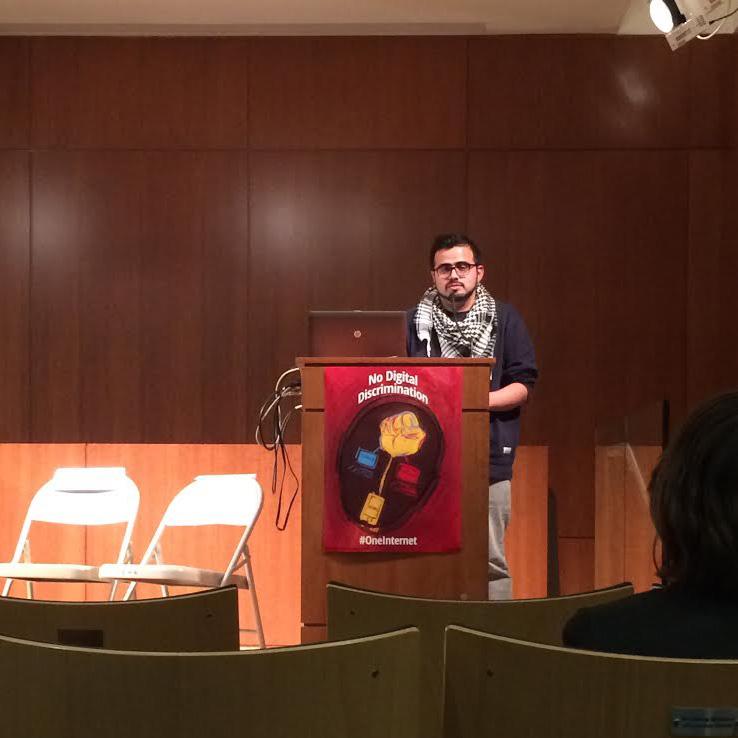Internet advocates discuss merger
October 28, 2014
Speakers from Free Press, presente.org and the Federal Communications Commission came together on Oct. 27 at Brooklyn’s Central Library to discuss the impact on the Internet of the prospective merger between Comcast and Time Warner Cable.
The event gathered people interested in saving net neutrality. Craig Aaron, Free Press president and CEO, defines net neutrality as a status quo in which there is no discrimination in the speed of internet connection. He said the FCC is tasked with making sure everyone has access to the Internet.
“Right now those policy makers — those decision makers — in Washington [have] got two big decisions that they need to make,” Aaron said. “One is this issue of net neutrality, and whether the Federal Communications Commission is going to transform that free and open Internet super highway into a toll road with a fast lane reserved for the few and the slow lane for the rest of us.”
Maya Wiley, founder and former president of the Center for Social Inclusion, said the merger of Comcast and Time Warner Cable would control 40 percent of the country’s broadband.
“It is then able to not only control that much market, and at the same time control who gets on the fast lane and how fast they move based on how much you can pay,” Wiley said.
Thousands of people have tried to contact Tom Wheeler, chairman of the FCC, but have not received a response. Following multiple ignored calls, this event was created to allow the public to weigh in on this issue.
Althea Erickson, policy director at Etsy, said the company is concerned that the merger will negatively affect the millions of sellers who use the site.
“If we were to move to a two-tier Internet, it is very unlikely that we would be able to afford to pay for fast Internet access, or we would have to increase our fees that would result in taking money directly from Etsy sellers,” Erickson said.
Jerrold Nadler, attorney and politician, highlighted the importance of the Internet to society today.
“The Internet is the modern transportation and telecommunication system,” Nadler said. “It must not be subservient to corporate interests.”
Borough president of Manhattan Gale Brewer outlined the impact of net neutrality on consumers.
“Net neutrality is vital to economics, educational and cultural well-being of Americans,” Brewer said.
A version of this article appeared in the Tuesday, Oct. 28 print edition. Email Christine Park at [email protected].
A previous version of this article incorrectly stated that Maya Wiley was CEO of the Center for Social Inclusion. WSN regrets this error.


























































































































































